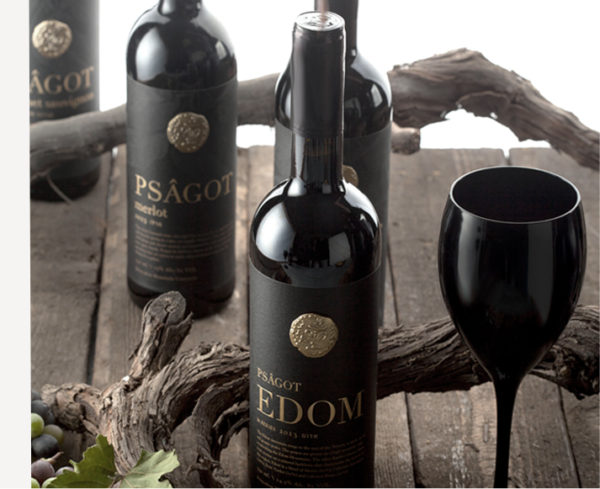Israeli settlements in the West Bank are known to engage in a deceptive practice under which their exported products are affixed with misleading “made in Israel” labels. Of course, Jewish settlers believe that the West Bank, conquered by Israel during the Six Day War and populated in the main by Palestinian Arabs, is an integral component of Israel and should never be relinquished by the Israeli government. Many Israelis, however, disagree with this blinkered view and think that the West Bank should form the core of a future Palestinian state under the terms of a negotiated two-state solution.
Addressing that contentious issue four years ago, the European Union decreed that goods manufactured in West Bank settlements must not be labelled with “made in Israel” stickers. Denouncing that decision, Israeli Prime Minister Benjamin Netanyahu erroneously compared it to the Nazi boycott of Jewish shops in Germany.

Now this contentious issue has reached Canadian shores with respect to Israeli wines made in the West Bank and sold in Canada. On July 29, Federal Court Justice Anne Mactavish handed down a judicious ruling that effectively endorses the European Union position.
Writing that Canadian consumers have a constitutional right to accurate labelling, she said that their buying choices could well be a tangible expression of their beliefs. As she put it, “One peaceful way in which people can express their political views is through their purchasing decisions. To be able to express their views in this manner … consumers have to be provided with accurate information as to the source of the products in question.”
Precisely.
Mactavish claimed she was not staking out an argument on the settlements’ legal status, but noted that all the parties in the case, plus the two intervenors, B’nai Brith Canada and Independent Jewish Voices Canada, concurred that settlements in the West Bank are not legally part of Israel.
“While there is profound disagreement between those involved in this matter as to the legal status of Israeli settlements in the West Bank, I do not need to resolve that question in this case,” she wrote in her balanced verdict. “Whatever the status of Israeli settlements in the West Bank may be, all of the parties and interveners agree that the settlements … in this case are not part of the State of Israel. Consequently, labelling the settlement wines as ‘Products of Israel’ is both inaccurate and misleading.”

This case was launched two-and-a-half years ago by David Kattenburg, a Canadian science educator, podcaster, journalist and son of Holocaust survivors who lives in Winnipeg. Kattenburg described the labels on wines produced by the Psagot Winery and the Shiloh Winery as an affront to his conscience and human rights.
Both wineries are located in the West Bank settlements of Psagot and Shiloh.

Kattenburg argued that they violate Canadian consumer protection laws because Canada does not recognize these settlements. Since Israel has not annexed the West Bank, the settlements are not technically in sovereign Israeli territory. The legal status of the West Bank has yet to be determined.
The position of the Canadian government in this case is strange and difficult to understand. Canada supports a two-state solution, yet disagrees with Kattenburg’s opinion. It says that the wines in question can be labelled products of Israel because the West Bank does not belong to any given country. It further says that the labels themselves are not intended to provide Canadians with information about “issues of public international law.”

Canada’s Food Inspection Agency, though, sided with Kattenburg and ordered the wines to be removed from shops. But after B’nai Brith Canada submitted a petition saying that the Canada-Israel Free Trade agreement applies in “the territory where the customs and laws of Israel are applied,” the Food Inspection Agency verdict was rescinded and the wines were returned to store shelves.
Kattenburg appealed, pulling the Federal Court in Ottawa into the controversy.
In her ruling, Mactavish wrote that Kattenburg has visited the West Bank and seen that Palestinians live under … permanent military occupation and apartheid.

She went on to say that Kattenburg launched his complaint and application for judicial review to help ensure respect for Canada’s consumer protection and product labelling laws, to help ensure that I and other Canadian wine consumers be provided with truthful and accurate information about the wine products that they purchase and consume, and to ensure both Canada’s and Israel’s respect for international human rights and humanitarian law.
Mactavish added that Kattenburg believes that Canadians should be able to make informed choices, based on truthful product labelling, about whether they wish to purchase settlement wines and other settlement products.
Kattenburg claims that labelling settlement wines on Canadian store shelves as products of Israel “facilitates Israel’s de facto annexation of large portions of the West Bank and represents an affront to (his) conscience as a Jewish person and to (his) commitment to the rule of law as a citizen of Canada.
These are not only valid ethical and moral arguments, but a riposte to Israel’s counter-productive settlement project in the West Bank, which is a huge impediment to peace.
